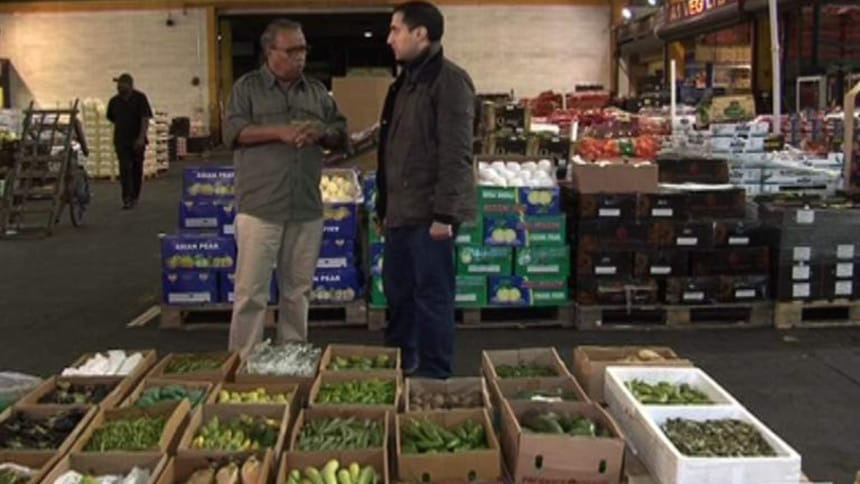Quality control, sound transport system key to veg export success

At the wholesale market in the city of Birmingham in the United Kingdom, it's possible to buy fruit and vegetables from around the world. But on a 2014 visit I was shocked to discover not a single Bangladeshi vegetable available, despite the strong demand for Bangladeshi vegetables in several countries including the UK; despite some vegetable export success.
Fruit and vegetable production in Bangladesh has flourished over the past decade. In eight districts the department of agricultural extension has implemented a project on producing organic lemons and vegetables for export, delivering training to 200 farmers, with a focus on both production and processing. Although the project is complete, similar measures are in the pipeline.
According to the department, Narsingdi alone produces organic vegetables on 1200 hectares. “I learnt about organic farming from the training,” says Narsingdi farmer Dulal Mia. “We have reduced pesticide expenditure by 60% through the use of pheromone traps.”
As a result of efforts by the government and farmers, exports of carrots, eggplants, tomatoes, spinach, cauliflower, pumpkin, papaya, ladies finger and other vegetables, as well as exports of processed and packaged produce to the UK are already worth more than Tk. 400 crore per annum. But it's a trade that could be worth a lot more.
Regulation of imported produce in the UK is managed by their department of environment, food and rural affairs, who set acceptable import standards. UK officials have even visited Bangladesh to advise farmers of production requirements. Standards, however, have not been maintained, which is a limiting factor in realising maximum trade benefit.
In Bangladesh it is the quarantine department which certifies crops as ready for export. This process involves testing produce at the airport before it is sent abroad. But it's become a problem that after testing traders sometimes mix rejected produce with approved produce.
“If anything goes wrong at customs,” says former warrant entomologist at the quarantine department, Md. Lotafot Hossain, “It's not the fault of quarantine. Authentic exporters do follow the rules and regulations.”
Yet any inconsistency in export produce quality caused by tampering will undermine success. There is already a permanent ban on imports of lemons and betel leaf to the UK.
Moreover, the recent ban on direct cargo flights from Dhaka to London offers another challenge, increasing the cost and time produce takes to reach the UK. Nowadays fresh produce can take up to 2 days to arrive instead of eleven hours. Efforts to overcome the direct cargo ban are paramount, and Hortex Foundation, the leading fruit and vegetable exporting body, can take a lead role.
A further hurdle yet to be overcome involves the use of light packaging. While other countries can export around 10 kilograms of produce in packaging weighing 100 grams, thus minimising freight charges, I've seen 9.5 kilograms of Bangladeshi beans being exported in a 500 gram box. Needless to say price is an important component of the desirability of Bangladeshi produce to UK buyers.
In a globalised world, the export of Bangladeshi fruit and vegetables to key markets has great potential, not only to the UK but to other countries, especially those including the United States and Middle Eastern countries which, like the UK, have an established Bangladeshi expatriate market as readymade buyers. However, to make the most of this potential Bangladesh must do more to ensure consistent quality and efficient delivery.
Back in Birmingham meanwhile, at a local grocery store on Coventry Road, the quest to find Bangladeshi produce met with success. In that store targeting the Bangladeshi expatriate community, about 75% of produce was Bangladeshi, according to the shopkeeper.

 For all latest news, follow The Daily Star's Google News channel.
For all latest news, follow The Daily Star's Google News channel. 



Comments